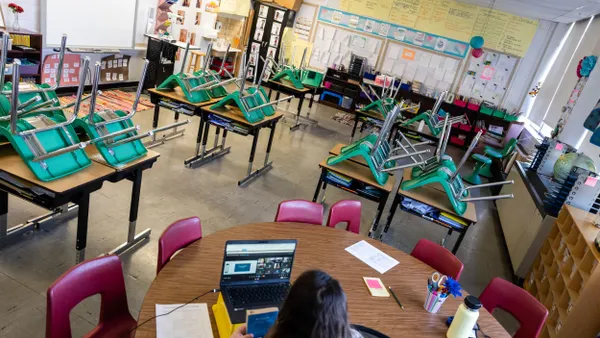Dive Brief:
- Adopting strategies used by national park rangers to create audience-centered experiences can help educators enhance student-centered learning, James Fester, an educational consultant with experience as a classroom teacher, instructional coach and National Park Service Volunteer at Angel Island State Park in California, writes for Edutopia.
- The National Park Service has developed a program, Teacher Ranger Teacher, which invites educators to learn how to teach like a park ranger, Fester writes. One approach is to consider that the way a tour — or class — is run can change based on the interests of the group or even random events.
- Just as rangers can center the location of a national park in their tour, educators can do the same by connecting lessons to real-world examples. And just as park visitors can tap sources such as tours and visitor centers to learn information, educators can use multimodal opportunities from videos to readings. Finally, rangers engage visitors by asking simple questions at the start and reserving more challenging queries for later, providing an easy model for scaffolding content that educators can adapt to lessons.
Dive Insight:
Student-centered learning can be an effective teaching style, giving learners more autonomy in the way they practice and progress through their work. It’s an alternative to traditional teacher-centered models where educators lecture and students passively listen.
The transition of classrooms from having the educator serve as a "sage on the stage" to being more of a "guide on the side" is a longtime trend that gained further steam amid online learning during the pandemic. The focus of many online tools adopted by schools over the past 21 months was to support learning in a way that allowed students to advance through or slow down lessons as needed, driving their education at the pace right for them.
The ability to make decisions and self-direct their own learning may also help engage students more and increase their excitement about lessons. According to an article from the International School of Beijing, research has shown student-centered learning environments can increase learner confidence and may support leadership skills as well. This style also helps develop a variety of interpersonal skills, from working independently to effectively collaborating and communicating with peers.
Schools and districts looking to adopt this style of learning may need to develop new training for educators to grow comfortable with the approach. This can include offering incentives for teachers as they get trained in this style, as well as additional support to provide more personalized learning and individual attention in classrooms.












